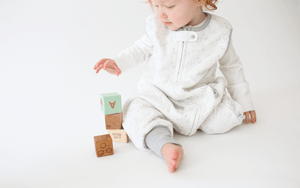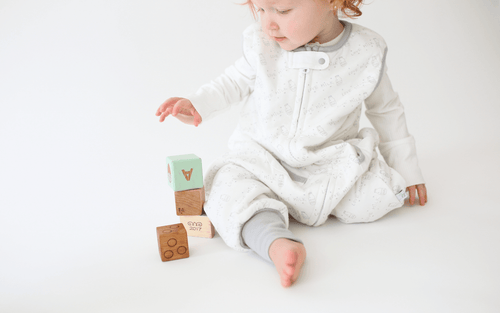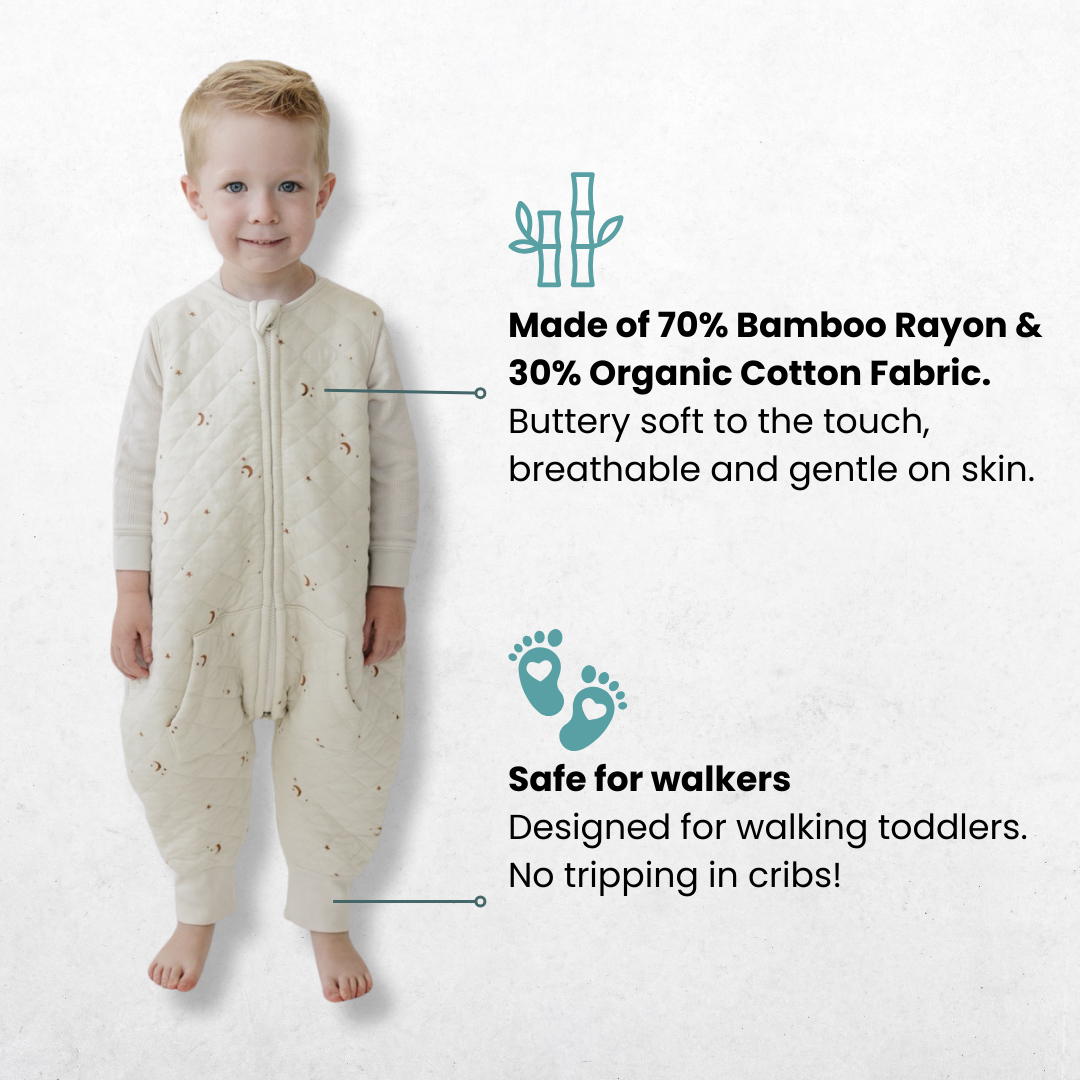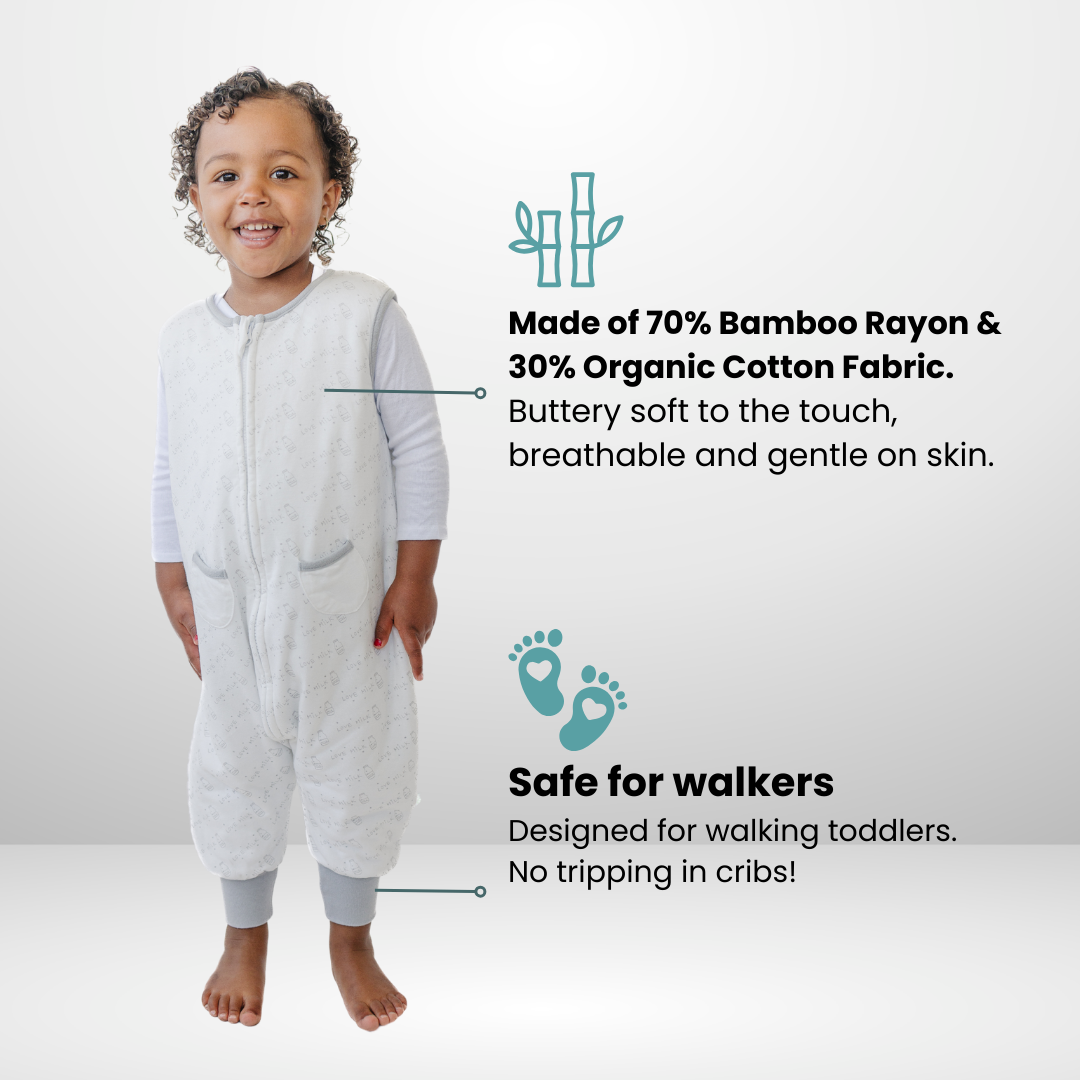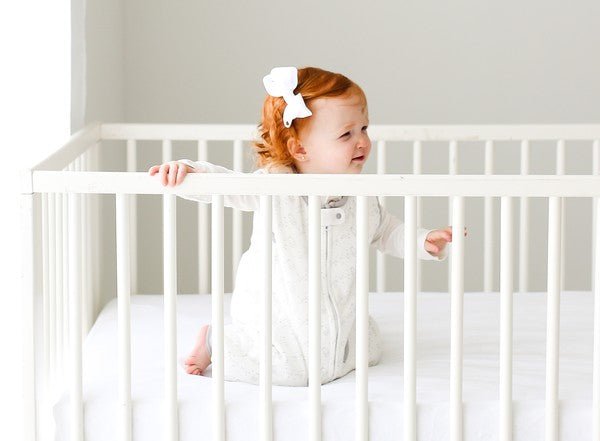Sleep Regressions
By: Edith Garcia, Certified Pediatric Sleep Consultant

The day has come! Your baby finally slept through the night. But suddenly, your baby wakes up in the middle of the night, staying awake for a couple of hours. This is called a sleep regression, and changes in sleep are part of your baby’s normal development.
Sometimes your baby’s sleep patterns can change. Where your baby once slept well, they may start to sleep less, and wake more often during the night. These sleep regression periods can last anywhere from a few days to weeks. Of course when you’re an exhausted parent this can feel much longer.
What is a sleep regression?

Essentially, a sleep regression is when your baby’s natural sleep patterns change, causing them to wake up frequently, sleeping less and shifting their sleep schedules. Changes in your baby’s sleep are common during the first year. They can happen at any time!
4 Month Sleep Regression
At 4 months, babies experience the first of the series of sleep regressions. As their brains develop and mature, their sleep cycles become more like yours. They begin to cycle between light and deep sleep. As they cycle out of deep sleep and into light sleep, the chances of them waking up are high. They will likely need help getting back to sleep and into their next sleep cycle.
Developmentally, your baby is more aware of their surroundings. Observing all the new things that their brain is now processing is very exciting! Along with this stage comes rolling. So much is happening in their brain and all of this impacts their sleep.
8-9 Month Sleep Regression
At about 8 to 9 months babies there is another sleep regression. Babies also begin learning new physical skills, such as crawling, pulling to stand and then followed by walking. During this stage you also get language; babbling counts as language, as they are stringing sounds together.
A major development during this stage is the introduction into separation anxiety. Mommy or daddy leave the room and can’t be seen and the crying begins. They are simply expressing their need to see their caretaker. This can carry over at bedtime. As you leave their room, they are crying and communicating that they miss their mommy and daddy.
These major developmental milestones impact sleep. As soon as they master these skills, sleep should return back to normal.
18 Month Sleep Regression
At 18 months toddlers experience a sense of independence, separation anxiety, along with teething. They are doing more for themselves and protesting, including protesting against sleep. Your 18 month old is doing so much more on their own, fighting you to let them feed themselves, or drinking from their cup without any help.
One major fight is going to sleep and staying in their crib. Separation anxiety is highest during this stage. They protest when you leave them alone, especially during the night. This is typically also the period where their canines are cutting through. Teething can disrupt sleep, but it should only do so when the teeth are about to cut through the gums.
Relevant Read:
Tips to Manage Sleep Regressions

The loss of sleep is hard especially if you’ve been getting a reasonable amount of sleep. Here are some things you can try to help your baby sleep well:
- Have a consistent bedtime routine each night. This will help your baby know that it’s time for sleep. Stick to the same routine as much as you can, even if sleep patterns change, consistency is key. Routines can vary for each family, but it can consist of a warm bath, pajamas or sleep sack followed by a bedtime story.
- Make sure your baby’s comfortable and use the ABC’s of safe sleep. Alone in their crib, on their Back, and nothing else in their Crib. Check the temperature of the room; it should be cool between 68-72⁰F. A sleep sack will also help your baby sleep soundly.
- Environment is key as well. Ensure the room is dark and keep noise level consistent by using a white noise machine to cancel out sound. Ensure you only use the white noise and no lullabies.
Things To Avoid Before Bed
There are a few things that should be considered as you prepare your little one for bed, even a couple of hours before bedtime:
- Avoid offering screen time before bed. Avoiding any devices before bed that can stimulate their brains. This will allow them to relax before bedtime.
- No rough play. This should be avoided at least two hours before bed. The strenuous activity will get them pumped with adrenaline. Definitely don’t want this running through them right before bedtime.
- Stay away from the sugar. Foods high in sugar should be avoided in the late afternoon and into the evening. Instead, offer a food high in protein if they are eating solids.
- Don’t skip the nap. Keeping a consistent schedule will help with sleep throughout the entire day and night. Skipping naps can impact their sleep. As they get older if a nap is skipped, putting them to sleep early can help them to catch up on their zzz’s.
Many babies find it hard to soothe themselves back to sleep if they wake up at night. If your baby is four months old or older, you could try teaching them to soothe themselves back to sleep, also known as sleep training. There are different methods you can try and not all involve letting your baby cry throughout the night.
Good news! Sleep regressions are temporary and will pass. If your little one was once a good sleeper and they suddenly cry overnight and nothing seems to console them, check in with your pediatrician. Illness can also disrupt sleep.
